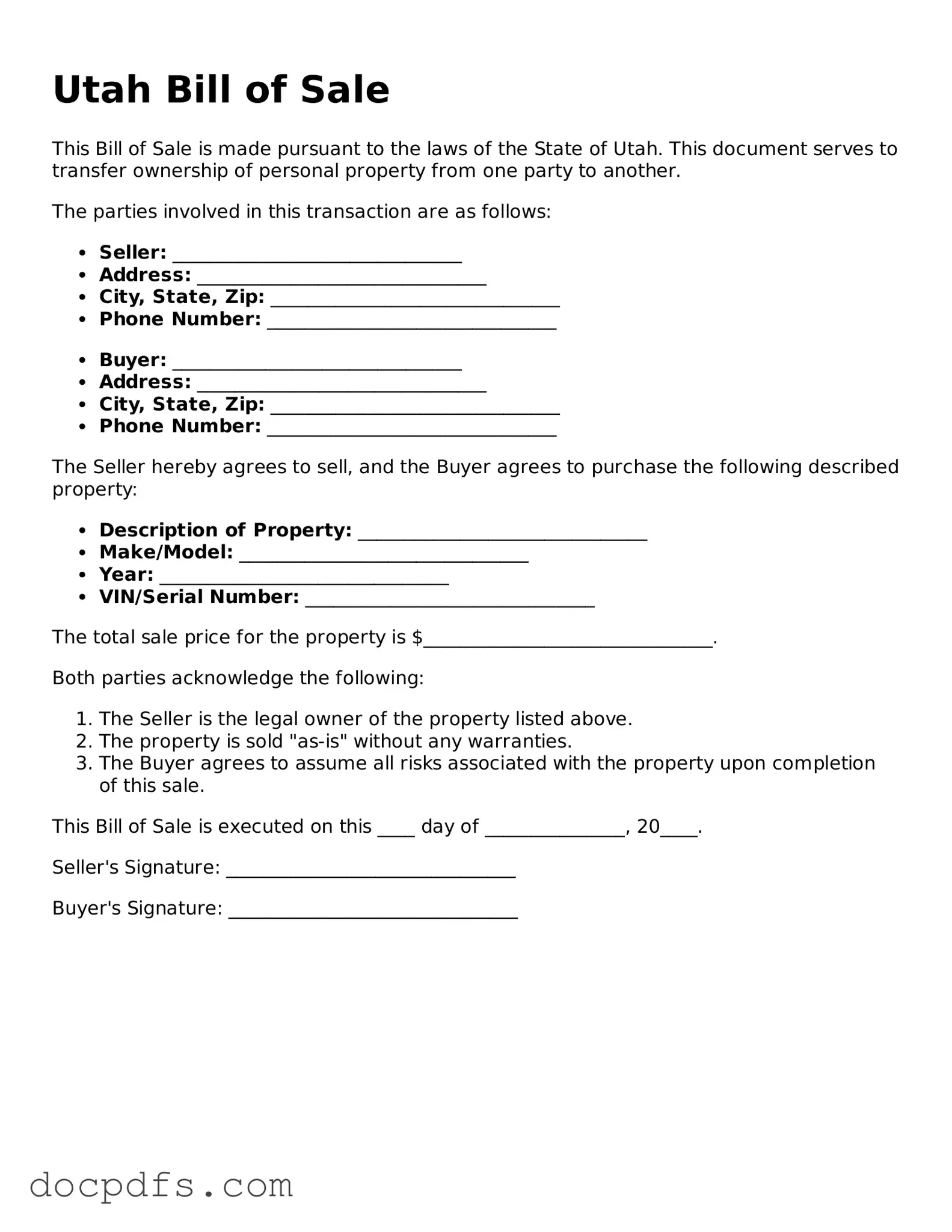Free Utah Bill of Sale Form
A Utah Bill of Sale form is a legal document that records the transfer of ownership of personal property from one party to another. This form serves as proof of the transaction and outlines key details, such as the description of the item, the sale price, and the parties involved. Utilizing this document can help protect both the buyer and seller in case of disputes or future claims.
Open Bill of Sale Editor Now

Free Utah Bill of Sale Form
Open Bill of Sale Editor Now

Open Bill of Sale Editor Now
or
⇓ Bill of Sale
Finish this form the fast way
Complete Bill of Sale online with a smooth editing experience.